Social Media Training
von Alana Culpepper

1. How to use
1.1. Social media refers to a wide array of Internet-based, applications, technologies and platforms that facilitate users to interact socially with one another online (Beal, 2015). According to Business Dictionary (2015), social media primarily refers to the web and cellular phone based application programs and mechanisms to share information among users. Social media encompasses networking sites like the Twitter, Facebook, and YouTube. Additionally, social media also includes bookmarking sites like Delicious, Digg, Reddit, and other sites that have content based on user participation and user-generated content (UGC). Social media also applies to forums, blogs, and any form of interactive presence or tools that enable users to engage in communication with one another over a variety of topics. Such topics can be blog posts, current events, history, future events and about anything including training.
1.1.1. The integration of social media and e-learning tools into the training plan is important to engage the participants and for clarity and accuracy in delivering lectures and presentations. It is relevant to Knowles' Andragogy theory, as applied to e-learning, since the learners geared towards self-directed learning, with modes of instructions given through the use of social media and computer technology.
1.2. The integration of social media and e-learning tools into the training plan is important to engage the participants and for clarity and accuracy in delivering lectures and presentations. It is relevant to Knowles' Andragogy theory, as applied to e-learning, since the learners geared towards self-directed learning, with modes of instructions given through the use of social media and computer technology.
1.3. Effect of social media or e-learning on student motivation Among the most popular social media, the use of Facebook, Twitter, and YouTube are evident among the Milennial learners. They allow real-time engagement between the lecturers and the students even beyond the traditional classroom setting and class hours. These forms of social media are popular with the younger generation and keeps them connected. They allow them to interact and share information freely, spontaneously, and provide instant feedback. The use of social media and e-learning allows the students to study at their pace using their free time and without the confines of the traditional classroom setting.
1.4. Among the ethical considerations in the course of integrating social media into training programs are privacy concerns particularly on what kind of information approved for sharing, responsibility and respect when interacting with other members of the community, and compliance with FERPA and HIPPA to protect the students. The relevant training program competencies for social media integration are instructional design and training delivery. Instructional Design includes analyzing and selecting technologies and integrating technology options into the organization's training program. Training Delivery includes delivering various learning methodologies and encouraging participation and building learner motivation. Social media for personal use usually contains information about one's family and friends, personal interests and is usually used to socialize, stay in touch, or just to be entertained. Social media for professional learning usually contains career information and is used to create and maintain a professional identity, to make useful contacts, and to search for opportunities (Robles, 2015). It is important to distinguish between social media for personal use and social media for professional learning. There is a need to adopt an image of professionalism on the latter, not only to protect the company and its image but also the owner of the social media. It is not uncommon for persons to lose their jobs over social media posts that are deemed improper and damaging to the company, even when they are personal posts.
1.5. Relevant training program competencies It is also important to consider diverse levels of awareness, along with diverse comfort levels, regarding technology and the use of social media for several reasons. Many young adults, having grown up in the digital age, have had their life-experiences formed around social networking and online collaboration through games and virtual role-playing environments. Today's young adults, known as the Millennial Generation, communicate and learn in ways that did not exist just a generation ago. The student belong to the Generation X. He started using the computer in the early 1990’s only after joining the U.S. Air Force. Social media was in its infancy. America Online was at its best. Today, some Baby Boomers are still working and going to school. They have even more limited exposure to social media. So, generational exposure to technology and social media is very diverse.
2. Idea 1
3. New Ideas
4. Research
4.1. ATD Certification Institute. (2015). Retrieved from https://www.td.org/Certification/Competency-Model Carrington College Center for Academic Excellence. (2015). Information gathering. Retrieved from http://www.carrington-cee.org/elc/mod/resource/view.php?id=7705 Marketing Teacher. (2015). The Six Living Generations In America. Retrieved from http://www.marketingteacher.com/the-six-living-generations-in-america/ Pappas, C. (2015). E-learning Industry. The Adult Learning Theory - Andragogy - of Malcolm Knowles. Retrieved from http://elearningindustry.com/the-adult-learning-theory-andragogy-of-malcolm-knowles Privacy Rights Clearinghouse. (2014).Networking privacy: How to be safe, secure and social. Retrieved from https://www.privacyrights.org/social-networking-privacy Robles, P. (2015). Personal versus professional social networks: infographic. Retrieved from https://econsultancy.com/blog/10755-personal-versus-professional-social-networks-infographic/ Stelter, B. (2013). Company parts ways with PR exec after AIDS in Africa tweet. Retrieved from http://edition.cnn.com/2013/12/21/us/sacco-offensive-tweet/
4.2. Research Project 2


